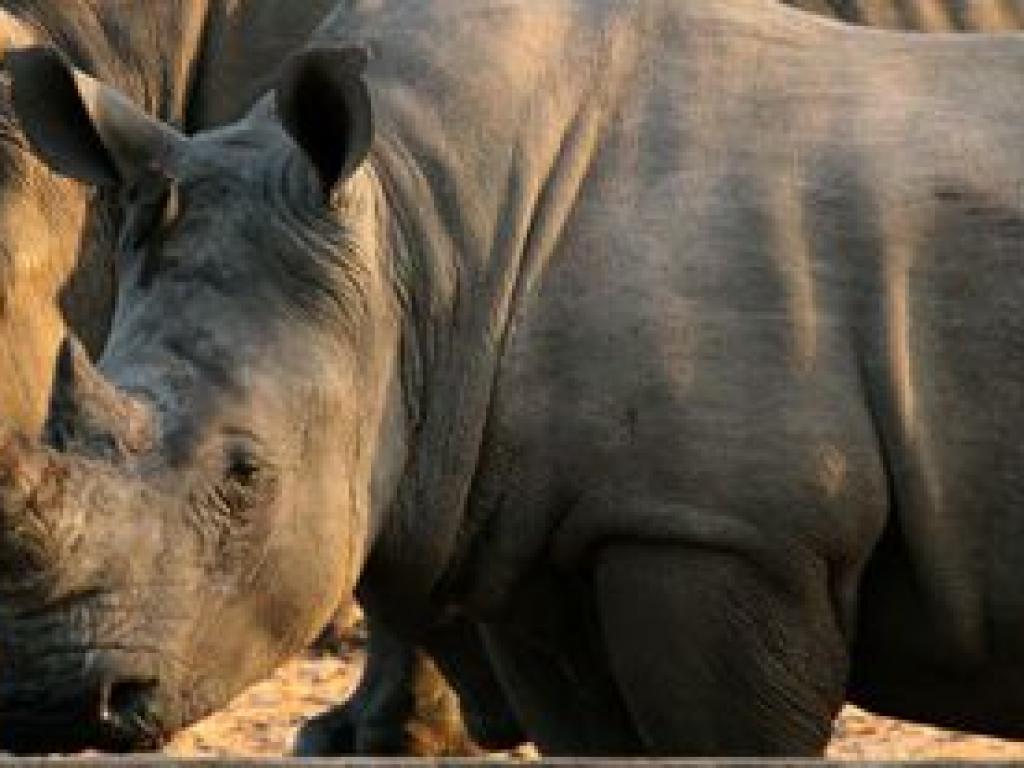Corona fires hunt for South Africa's wildlife - elephant, rhinoceros as unnoticed virus victims

04/18/2020
Senior Research Officer, Annette Hubschle, says "Now more than ever we need to explore ways of supporting village communities around protected areas" in an interview with Markus Schönher on www.domradio.de
Corona fires hunt for South Africa's wildlife elephant, rhinoceros and co. as unnoticed virus victims
(Translation from https://www.domradio.de/themen/corona/2020-04-18/elefant-nashorn-und-co-als-unbemerkte-virusopfer-corona-befeuert-jagd-auf-suedafrikas-wildtiere )
The Corona pandemic threatens a new unemployment record in South Africa. While the government is trying to avert a humanitarian catastrophe, one virus victim remains largely undetected: the country's wildlife.
Soldiers patrol the streets. The police stop motorists to enquire about their destination. A military helicopter rattles through the suburbs at least once a day. South Africa is in a strict curfew at week three. South Africans may only go outside for shopping or to see a doctor. Positive side effect: a decrease in the crime rate, including cases of poaching. In the long run, however, Covid-19 could do the opposite, environmentalists warn.
Tourist destinations are also closed
"We are currently benefiting from these measures," quotes the South African newspaper "Times" Johan Jooste. The retired major-general of the South African armed forces is responsible for security in the national parks today. Like restaurants, cinemas and many shops on the Cape, these popular tourist destinations remain closed for the time being. Jooste hopes that the exit restriction will not only flatten the curve of the corona infections, but also that of the illegally killed elephants, rhinos and other endangered species.
Impoverished fishing communities have lost their livelihood
According to Moenieba Isaacs, a lecturer at the University of Western Cape, the trend is also reflected in the marine economy: "With all major celebrations in China cancelled, such as the Chinese New Year or weddings, the demand for exotic seafood is currently falling to zero." This not only reduced the number of illegally caught lobsters and snails. The many impoverished fishing communities around Cape Town would have lost their livelihood as a result of the export freeze.
Isolation is also a concern in the rest of the country. "In addition to the nature reserves, the state and private safari lodges will remain closed during the exit restriction," says Jo Shaw, wildlife expert at WWF South Africa. The financial consequences for the companies and employees of national parks, safari companies and private reserves are "significant".
Poaching becomes a source of income
The village of Numbi lies on the border with the world-famous Kruger National Park. Crumbled houses line the main street. With the exception of a general store and a barbershop in a shipping container, economic life also stands still outside of times of crisis. There are no jobs, houses or streets in the rural province of Mpumalanga. In many villages around the national parks, poaching has developed into a lucrative source of income. For each slaughtered rhinoceros, the helpers receive up to 4,300 euros.
In 2019, poachers in South Africa killed almost 600 rhinos. This is a success for the government in Pretoria - just five years ago there were more than twice as many. COVID-19 threatens to reverse this trend soon. "Thousands of people who live around protected areas lost their livelihoods from tourism, hunting and other activities in the wildlife sector overnight," says Annette Hübschle, social scientist and expert for illegal markets at the University of Cape Town. Some operators of safari lodges are reportedly preparing for a full year without international visitors.
Covid-19 could fire illegal animal hunting
Meanwhile, economists are drawing a horror scenario according to which the virus in South Africa's unemployment rate could swell from the current 29 to 50 percent. Hübschle expects the economic damage caused by Covid-19 to fuel the illegal animal hunt. Above all, "bush meat" is in the crosshairs of poachers, ie mammals and reptiles that are killed in the savannah for human consumption. "Now more than ever, we have to explore ways in which we can support village communities around protected areas," said Hübschle.
A similar call comes from WWF employee Jo Shaw. She also fears that national park residents will increasingly use environmental resources in the absence of tourists. "That's why it's important to find alternative sources of income for both the parks and the people who make a living from them."
Markus Schönherr
